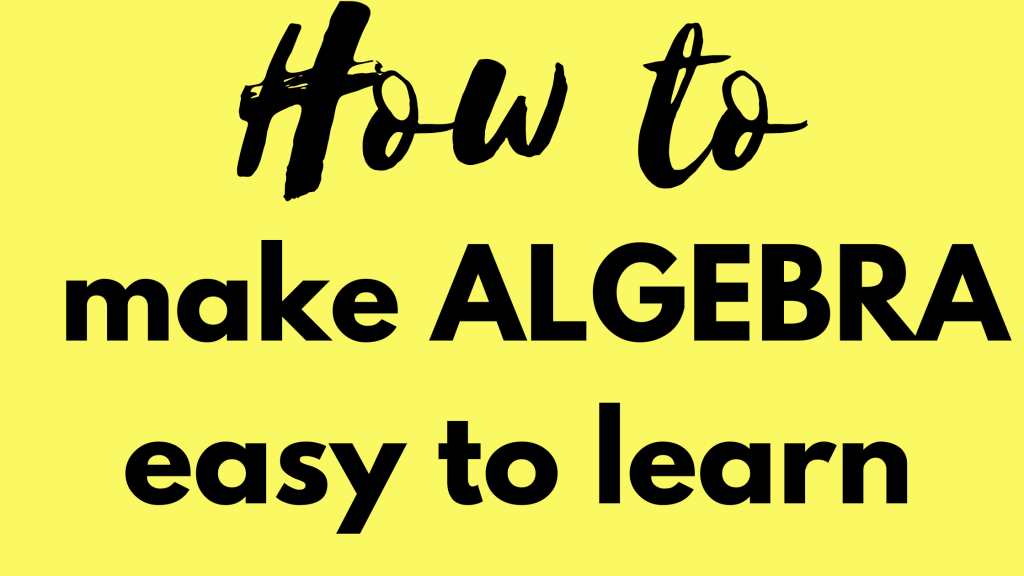 How to make algebra easy to learn
How to make algebra easy to learn
What actually is algebra and how can we make algebra easy to learn? The problem with maths is it is so abstract. What that means is we are often asking children to do things in their mind. When they are younger, we allow them more opportunities to see numbers as physical objects (often called manipulatives) for example 3 + 4 we may give them cars, marbles, cubes etc. The older they get, we are expecting them to calculate with numbers on paper. We can take for granted that these numbers are very abstract and hold little meaning for children.
Then just as they are getting used to the different methods for adding, subtracting, their times-tables, dividing, maybe some fractions and percentages- we go throw in maths that involves letters. It is no surprise that children can get easily intimidated by algebra as a topic. It makes it even worse when parents may share their negative experiences of algebra or state (as I have often heard) “You will never use algebra in real life!” This is simply not true, we actually use it all of the time, just maybe not in the same way as a maths lesson. Working out costs of services, goods we buy, amounts of medication, currency exchange all involve some form of algebra.

Algebra is a topic that can fill a person with dread, yet when taught right it is also a topic that can actually be quite fun. I absolutely love teaching algebra because once a child has understood the main concepts, they can feel like they are able to crack a code. It is not only a huge confidence booster but also becomes something they enjoy. Children tend to enjoy maths when they feel they are able to do it- it is as simple as that!
What Algebra does a child in Year 6 need to know?

Algebra is a key topic once your child gets up to secondary school but there are also some key concepts that are “expected” to be understood in Year 6. Many of these are taught again in Year 7 but understanding these before secondary school is going to lay really good foundations for the more complex skills they meet in Key Stage 3 and then their GCSEs. Here are the objectives from the Year 6 National Curriculum. I will break each one down below in a bit more detail below.

-
use simple formulae
This is a prime example of an algebraic skill we use in “real life”. We are using a formula (a rule) to work out a cost. It is a formula rather than just a calculation because one of the numbers in the calculation can vary. For example, we have the price for hiring a hall. Different people could want the hall for different lengths of time so the total price would vary. However we can use the same formula each time to calculate the price. In this example from SATs Paper 3 2022, we have to input a number into the formula to find the total cost. The number is given in the information. You can watch a modelled solution here:
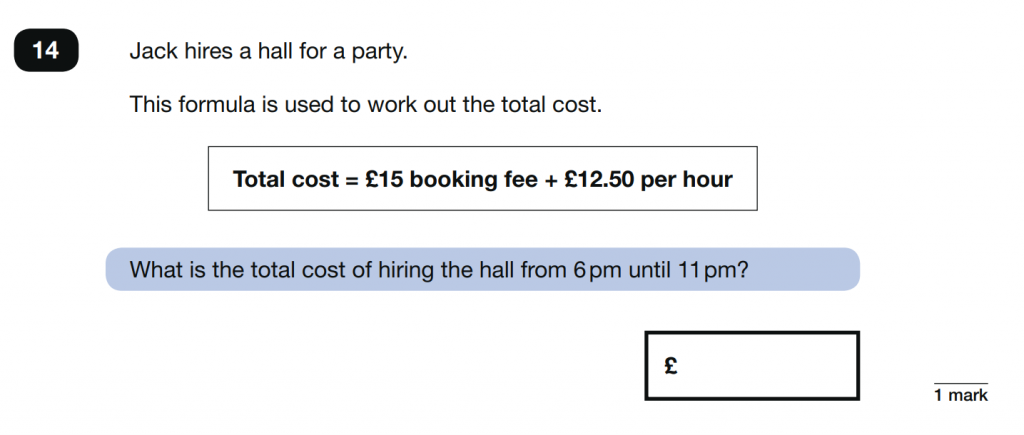
-
generate and describe linear number sequences
Sequences are a big topic going up to Key Stage 3 and 4, where children are expected to learn more complex types of sequences and learn how to find rules. It is really helpful to get familiar with sequences in Year 6. Here we are given the rule in simple terms, in Year 7 this same rule would look like 2n + 3. In this problem from SATs Paper 2 in 2019, children would need to apply the rule moving on from the number 53 but also spot that they need to apply the reverse of this rule to find what came before 25. You can watch a modelled solution here:
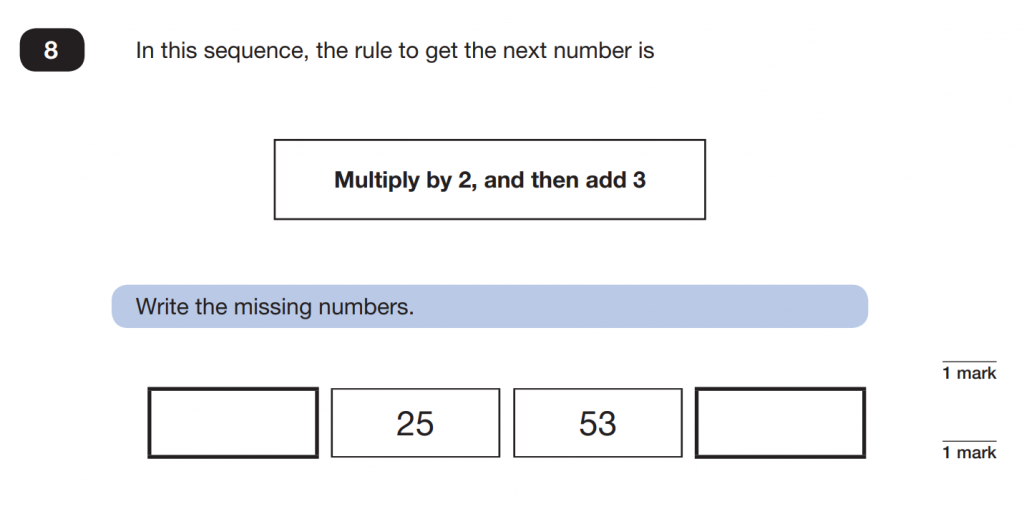
-
express missing number problems algebraically
This is a very introductory skill to build the concept of algebraic expressions. This is truly abstract and where children can separate off in terms of their ability to grasp it. Some children will just get it straight away and others may feel like algebra is just not their forte. It’s not true. I often spend a lot of time on this skill so that children can securely build crack this abstract concept, it makes learning other algebra much easier as they move on. Algebra is not a topic that goes away, so it is sooooo important to lay solid foundations. It may take time, but it is time worth investing. In this problem from SATs Paper 3 2019, we have a simple statement and children have to choose which expression ( a term used to describe a number sentence which contains letters or unknown values) matches what he has said. You can watch a modelled solution here:

-
find pairs of numbers that satisfy an equation with 2 unknowns
The next 2 learning objectives from the Year 6 National Curriculum are very similar. This objective requires an equation to be satisfied. So there is usually an answer and we have to find the different ways to make that specific answer. In the first example taken from SATs Paper 3 2019, we have our typical x and y algebraic values. We have to find one number plus 2 lots of another number that would equal 20. There are lots of possibilities. For example, x = 2 & y = 9 or x = 4 & y = 8 (there are lots more possibilities). You might notice that x has to be an even number otherwise it would force y to be a decimal number and the question states it must be a whole number. You can watch a modelled solution here:
-

Paper 3 2019 In this next example from SATs Paper 2, 2022, symbols are used instead of x & y but it is the same concept. If we replaced the triangle for x and the circles for y, you would have 3 lots of x makes 18. Then using that information, it will lead you to more clues. You can watch a modelled solution here:

Paper 2 2022
-
enumerate possibilities of combinations of 2 variables
This learning objective is similar to the previous one as we are exploring combinations but we are not working toward finding a specific value. In this example from SATs Paper 3, in 2018, we have to think about all of the possibilities and find the missing two. This involves thinking systematically, and having a good way to record possibilities so that you are sure you have them all. You can watch a modelled solution here:
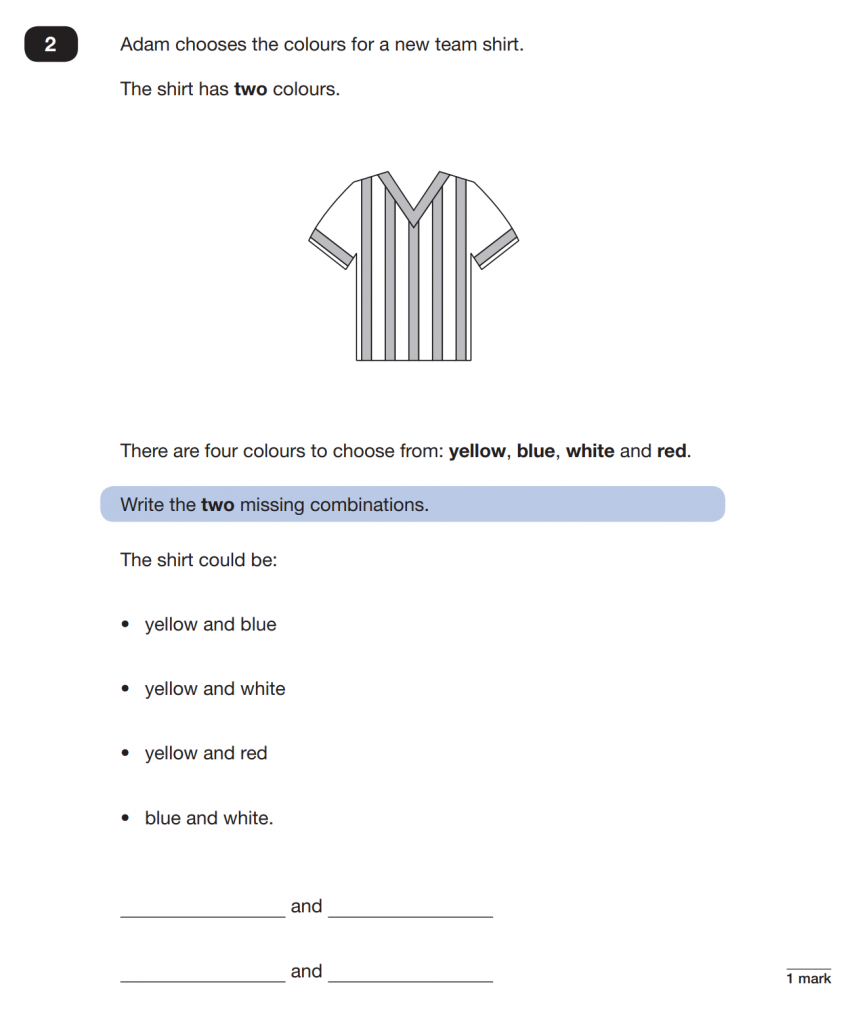
Why is algebra hard?
As I mentioned before, algebra is even more abstract than your regular maths! It can be hard to solve problems when you can’t see, imagine or hold it. It involves a lot of visualising if your child hasn’t been taught lots of strategies or foundational knowledge. This can cause overwhelm and then a belief that they are just not good at algebra. I truly believe that everyone can be good at algebra if they are given the opportunity to explore algebraic concepts in lots of different ways until it is less abstract. I have created a course which is an introduction to algebra basics. It is suitable for children in Year 5 or 6 and will help them prepare for what they need to know in Year 6. The All About Algebra course will help ease your child into the concept of algebra, building essential skills over a 6 part course. They will learn what algebra is, some common rules and then work through activities where they will find out what a missing value is (finding n). You can download it here.
Algebra is a significant part of the maths curriculum from Years 7 onwards and the concepts get much more complex up until the GCSE papers. If your children can start Year 7 already armed with the basics and a confidence to engage with algebra, half the battle is already won.
Using manipulatives makes algebra easy to learn

It is a shame that teaching methods tend to avoid manipulatives as children get older as they are very useful for enabling children to understand the abstract. Take a look at how you can use objects (manipulatives) to solve algebraic problems here.
Having fun makes algebra easy to learn
Algebra can be fun, honest it can! I have put together a book of puzzles which use symbols as the unknown variables. This book of puzzles can be attempted by all of the family and is a fun way to practice skills and get familiar with this type of thinking. Think of it as brain training. My algebra EBook is only £1.99 and you can even watch me demonstrate how to solve some of the puzzles here
Finally, if your child is ready to tackle the algebra objectives as set out in the Year 6 National Curriculum, I have got you covered. My Year 6 Algebra EBook contains 5 video tutorials covering each objective, with practice worksheets and plenty of examples of actual questions from past SATs papers. Download it here



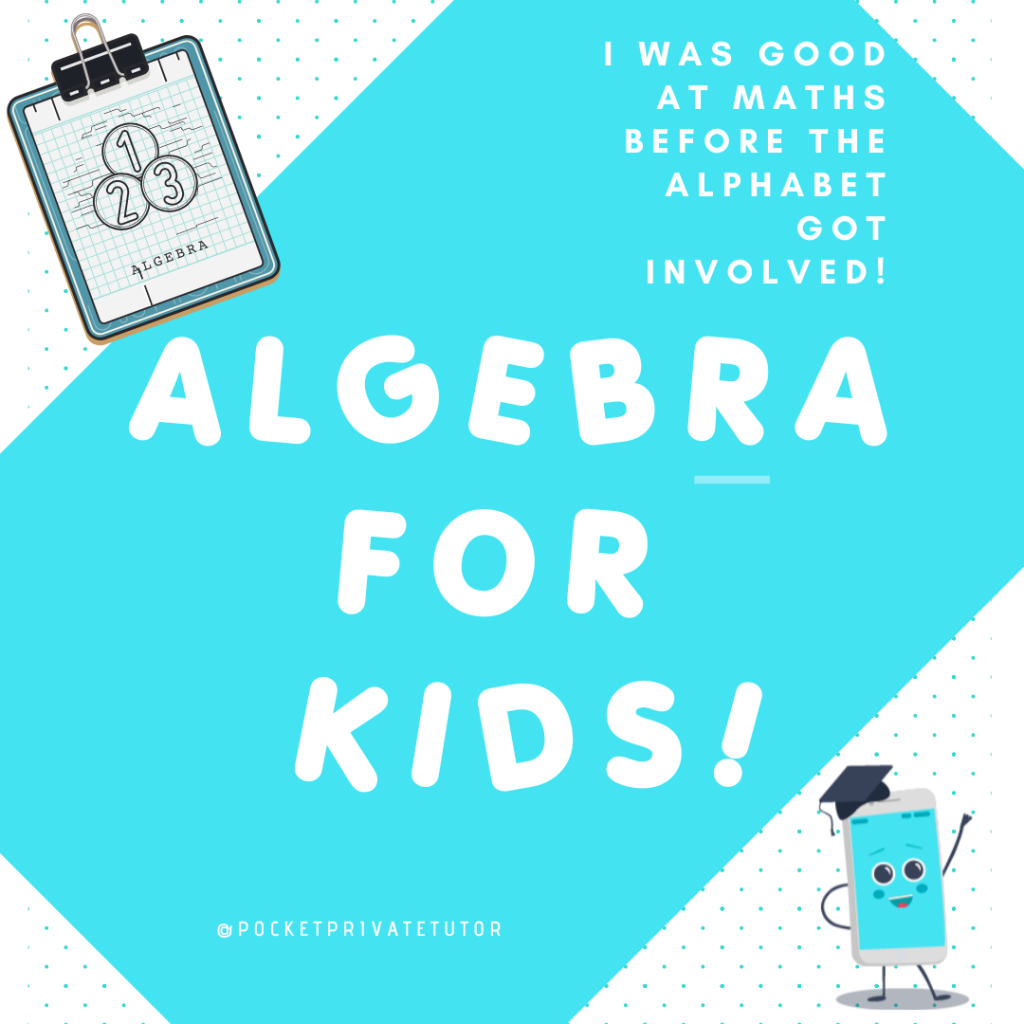





Leave a comment
Sign in to post your comment or sign-up if you don't have any account.